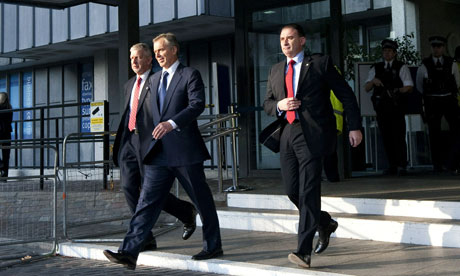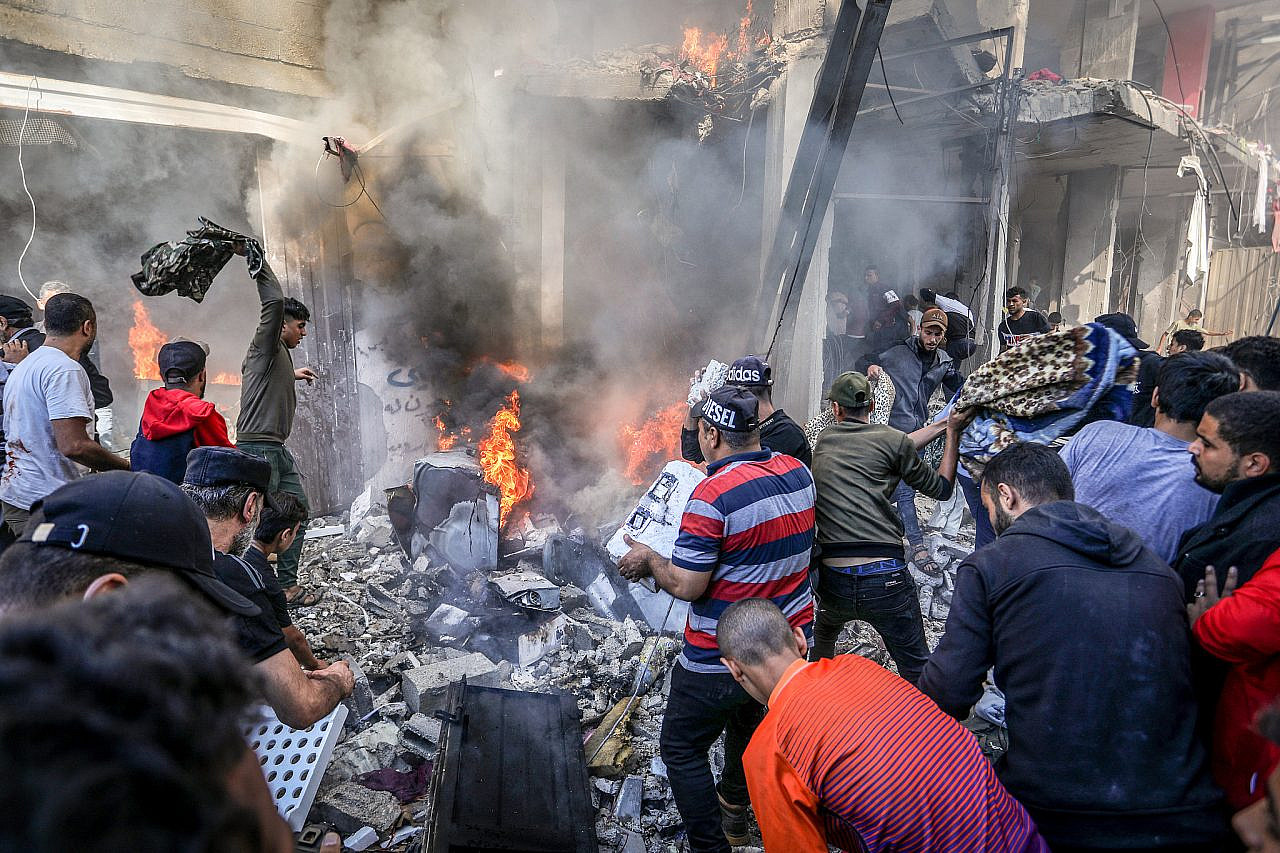 Tony Blair today admitted to brushing aside warnings that invading Iraq would be unlawful and made clear his overriding priority, even at the expense of opposition and secrecy at home, was to maintain a close relationship with the US president.
Tony Blair today admitted to brushing aside warnings that invading Iraq would be unlawful and made clear his overriding priority, even at the expense of opposition and secrecy at home, was to maintain a close relationship with the US president.
In four hours of testimony to the Chilcot inquiry, ending with expressions of regret for lives lost that provoked jeers from relatives of the dead, Blair disclosed that he privately told George Bush he could "count on us" in helping get rid of Saddam Hussein, an aim, he said, for which his government should be "gung-ho".
A move from Britain to back off after the UN refused to support military action, would have had "disastrous consequences for a tough stance on WMD and its proliferation – and for our strategic relationship with the US, our key ally", Blair said.
He acknowledged the cabinet might not have seen official papers about plans for war, but said ministers would have been aware of the plans from the media.
The former prime minister came to the Chilcot inquiry early this morning, perhaps to avoid an anticipated large number of protesters. Barely 50 were there. More arrived later but were almost outnumbered by a large police presence.
Throughout the hearings, and only occasionally subjected to sharp questioning, Blair described how he told Bush during a phone conversation in December 2001, well over a year before the invasion, that "if [regime change] became the only way of dealing with this issue, we were going to be up for that".
Inquiry documents show how government lawyers, including Lord Goldsmith, the attorney general, repeatedly warned that regime change as an objective of military action would be unlawful.





 The United States will mark the 84th anniversary of the Japanese attack on the U.S. naval...
The United States will mark the 84th anniversary of the Japanese attack on the U.S. naval... In 2021, a book titled “The Human-Machine Team: How to Create Synergy Between Human and Artificial...
In 2021, a book titled “The Human-Machine Team: How to Create Synergy Between Human and Artificial...:focal(1285x1016:1286x1017)/https://tf-cmsv2-smithsonianmag-media.s3.amazonaws.com/filer_public/d1/4e/d14ed238-3b62-4506-9f53-fc2178dade60/nov2025_d17_prologue.jpg) In the fall of 1945, a bit more than six years after Nazi Germany invaded Poland...
In the fall of 1945, a bit more than six years after Nazi Germany invaded Poland... The last plane carrying U.S. forces left Afghanistan on Monday, meeting an Aug. 31 deadline to withdraw...
The last plane carrying U.S. forces left Afghanistan on Monday, meeting an Aug. 31 deadline to withdraw...






























